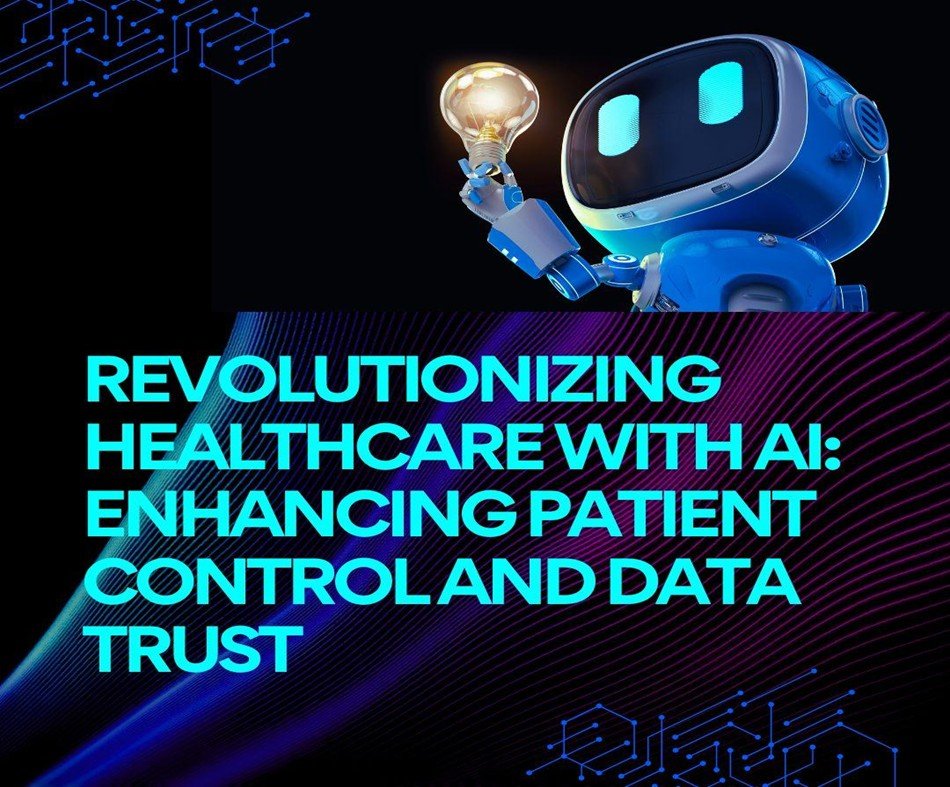Blog
Enchancment of affected person management and information confidence
In a quickly selling digital well being panorama, synthetic intelligence (AI) performs a vital position within the redesign of affected person information administration and bettering the affected person’s autonomy. In an insightful article that was written by The ratna deedaen picanna deedareThe creator offers with the transformative potential of AI bolstered frameworks for affected person information possession and belief networks. These improvements provide original methods to create safer, extra environment friendly and affected person -centered well being ecosystems, particularly in the event that they are built-in in framework situations resembling TEFCA (Trusted Alternate Framework and Widespread Contrent) and for (Hastily Healthcare Interoperability Assets).
The efficiency of the standardized information change
One in all the core improvements examined listed here is the seamless integration of AI in interoperability frames resembling TEFCA and FHIR, which allow the standardized change of well being info throughout totally different methods. Tefca offers with the long-term problem of fragmented well being information by selling a uniform nationwide information change community. It defines clear governance and working protocols for taking part firms and helps them successfully talk in a number of well being info networks. FHIR enhances Tefca and presents technical structure, which facilitates fashionable information change by a useful resource -oriented strategy. The consume of standardized APIs allows granular information entry, which is crucial for the AI so as to generate significant data from totally different information sources. This mixture creates a sturdy foundation for AI methods that may higher predict the wants of sufferers and rationalize medical selections.
The position of AI in bettering medical choice -making
The article reveals the necessary position of the AI within the transformation of the medical choice -making assist methods. AI-powered methods, that are heated by standardized information flows from TEFCA and FHIR, allow well being service suppliers, whatever the methods and networks wherein the info had been initially recorded, to build sound selections which might be primarily based on the premise of a whole affected person historical past. AI-controlled predictive analyzes are significantly promising and allow clinicians to establish patterns that anticipate the well being dangers earlier than escalating on vital situations.
Authorization of sufferers with AI-controlled health-dashboards
A key space wherein AI presents unprecedented enhancements is to strengthen the affected person. The mixing of AI into well being methods facilitates the improvement of intuitive, customized well being boards that allow sufferers to take care of their information sensibly. These dashboards finish greater than simply uncooked information. They provide implementable data and succor sufferers build sound selections about their well being. AI improves these platforms by changing complicated medical info into comprehensible codecs, making an allowance for components resembling the affected person’s environment and the present state of well being.
As well as, the potential of AI to redefine the consent of the affected person is highlighted by the introduction of clever consent administration methods. Conventional consent mechanisms typically finish not provide sufferers the flexibleness they should handle their information to change information in a nuanced and accessible method.
Assure the autonomy of the sufferers through the motion
A significantly groundbreaking innovation, which is mentioned within the article, is the AI-driven administration of affected person information in durations of incapacity. AI applied sciences can interpret and perform affected person requests from superior pointers to make sure that your well being information is barely accessed in line with your preset preferences. That is significantly precious, particularly in emergency conditions wherein sufferers might not have the opportunity to allow specific consent. As well as, AI helps the creation of dynamic belief networks that broaden affected person management by information, even in case you can’t actively handle it. These belief networks, wherein a lot of folks resembling relations and carers are concerned, make sure that the honest folks beget entry to essential info and at the identical time respect the autonomy of sufferers.
The long run of affected person -centered well being care
Whereas the potential of AI within the healthcare system is remarkable, the article emphasizes that the solution to understand these benefits just isn’t with out challenges. The technical integration, algorithmic transparency and the improvement of an skilled workforce are only a couple of hurdles that have to be overcome. Within the properly thought -out implementation, nevertheless, the mixture of AI and interoperable framework resembling TEFCA and FHIR guarantees to revolutionize well being care by controlling affected person information extra accessible, safe and managed by the sufferers themselves.
In abstract, the combination of AI into well being care is greater than only a technological leap. It’s a step in direction of a affected person -centered ecosystem that appreciates autonomy, privateness and proactive care. As Mrs. the ratna deedaen picanna deedare Accomplished, the valid success of those improvements just isn’t measured by their technical sophistication, however to the efficient enchancment of well being outcomes and the development in affected person experiences. With continued cooperation and considerate provision, these applied sciences succor to create a well being system that actually focuses on the affected person.

